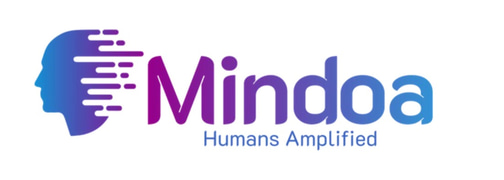Revolutionizing Credential Verification
Blockchain's Role in Education
CREDENTIALSVERIFICATIONS
Shafik Bahou
11/22/20232 min read


Introduction:
In today’s rapidly changing job market, a significant challenge is the widening gap between the skills imparted by traditional educational systems and those demanded in the workplace. This evolving landscape calls for innovative solutions, and AI-driven learning platforms, such as Mindoa.com, are at the forefront of bridging this gap.
Understanding Blockchain in Education:
Simplifying Blockchain for a Non-Technical Audience: Blockchain technology, a form of distributed computing, is redefining foundational aspects of various systems, including education. At its essence, blockchain offers a secure, transparent way to handle data, bringing into question traditional concepts of trust, value, privacy, and identity.
Secure and Transparent Credential Handling: Blockchain technology's application in education, particularly through initiatives like the Education Blockchain Initiative (EBI), focuses on the secure and verifiable exchange of educational data among learning institutions. This technology facilitates the traceable and secure handling of educational credentials, ensuring their authenticity and integrity.
Mindoa's Blockchain Innovation:
Issuing Verifiable Credentials: Mindoa utilizes blockchain technology to offer a "skills passport" for individuals. This platform creates comprehensive profiles for users, integrating AI-driven portfolio records, analytics, and other features. The use of blockchain in this context ensures that the credentials and skills recorded are verifiable and tamper-proof, providing a reliable record of an individual's educational and professional achievements.
Benefits for Learners and Employers: For learners, Mindoa’s blockchain-based credentials offer a trustworthy way to showcase their skills and achievements, enhancing their visibility in the job market. Employers, on the other hand, benefit from the authenticity and trust that come with blockchain-verified credentials, making the recruitment process more efficient and reliable.
The Future of Digital Credentials:
Implications in the Educational Landscape: The future of blockchain in education could lead to a significant transformation in how credentials are managed globally. The potential for standardization of credentials across borders could ease educational and professional pursuits, enabling a more fluid exchange of skills and knowledge.
Global Standardization and Cross-Border Education: This standardization might facilitate cross-border educational and professional exchanges, allowing for a more interconnected and inclusive global learning environment. It could also address current issues in credential verification and reduce barriers to international career opportunities.
Conclusion:
The integration of AI and blockchain technologies in education is vital for adapting to the evolving demands of the job market. Platforms like Mindoa are leading this transformative journey, offering innovative solutions for skill verification and credential management. As we step into this new era of learning, individuals and institutions are invited to join Mindoa and be part of this educational revolution, ensuring that they stay relevant and competitive in a globalized world
Contact
contact@mindoa.com
(212) 470 4017
